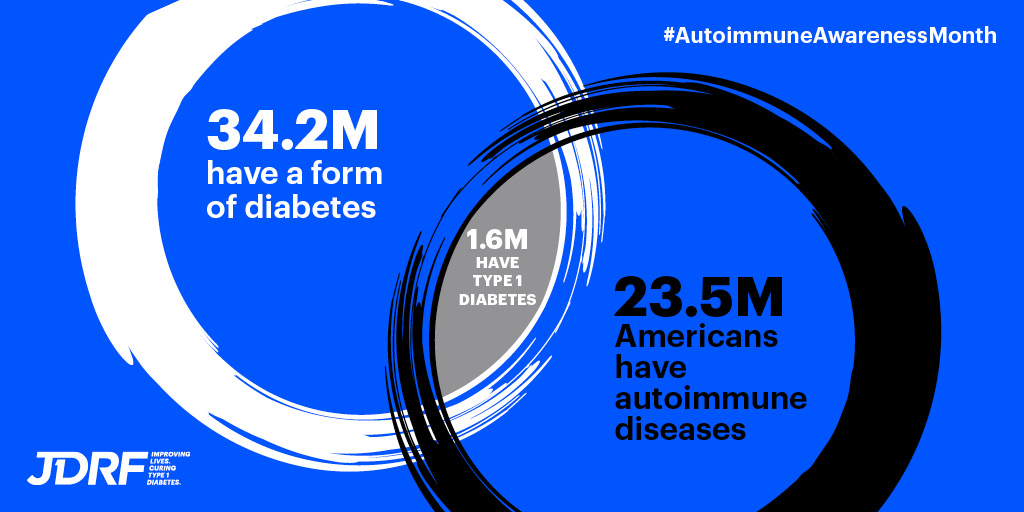March is National Autoimmune Diseases Awareness Month
Type 1 Diabetes (T1D)
Type 1 diabetes (T1D) is an autoimmune disease that occurs when a person’s pancreas stops producing insulin, the hormone that controls blood-sugar levels. T1D develops when the insulin-producing pancreatic beta cells are mistakenly destroyed by the body’s immune system. The cause of this attack is still being researched, however scientists believe the cause may have genetic and environmental components.
Signs of T1D
T1D is identified in children and adults as they show signs of the following symptoms:
- Frequent urination
- Increased thirst
- Dry mouth
- Itchy or dry skin
- Increased appetite
- Unexplained weight loss
- Yeast infections
Other signs of diabetes
Pay attention if you find yourself feeling drowsy or lethargic; pain or numbness in your extremities; vision changes; fruity or sweet-smelling breath which is one of the symptoms of high ketones; and experiencing nausea or vomiting—as these are additional signs that something is not right. If there’s any question, see your doctor immediately to ensure that your blood sugar levels are safe and rule out diabetes.
What happens in the body of a person with T1D?
Insulin allows the body to convert sugar (glucose) found in food to energy. As the body becomes incapable of creating insulin, T1D symptoms start to appear (e.g., nausea, vomiting, extreme thirst, exhaustion, and/or frequent urination). People are typically diagnosed with T1D after showing these symptoms. People with T1D must work closely with their endocrinologists to determine the insulin doses and lifestyle changes needed to manage their blood-sugar levels.
If not treated properly, people with T1D are vulnerable to health issues ranging from minor to severe. If people with T1D spend the majority of their time with blood-glucose levels outside the recommended healthy range, it can lead to potentially deadly episodes of hyperglycemia (high blood sugar) and hypoglycemia (low blood sugar). Chronic high blood sugar often causes devastating health complications later in life, including blindness, kidney failure, heart disease, and nerve damage that can lead to amputations.
